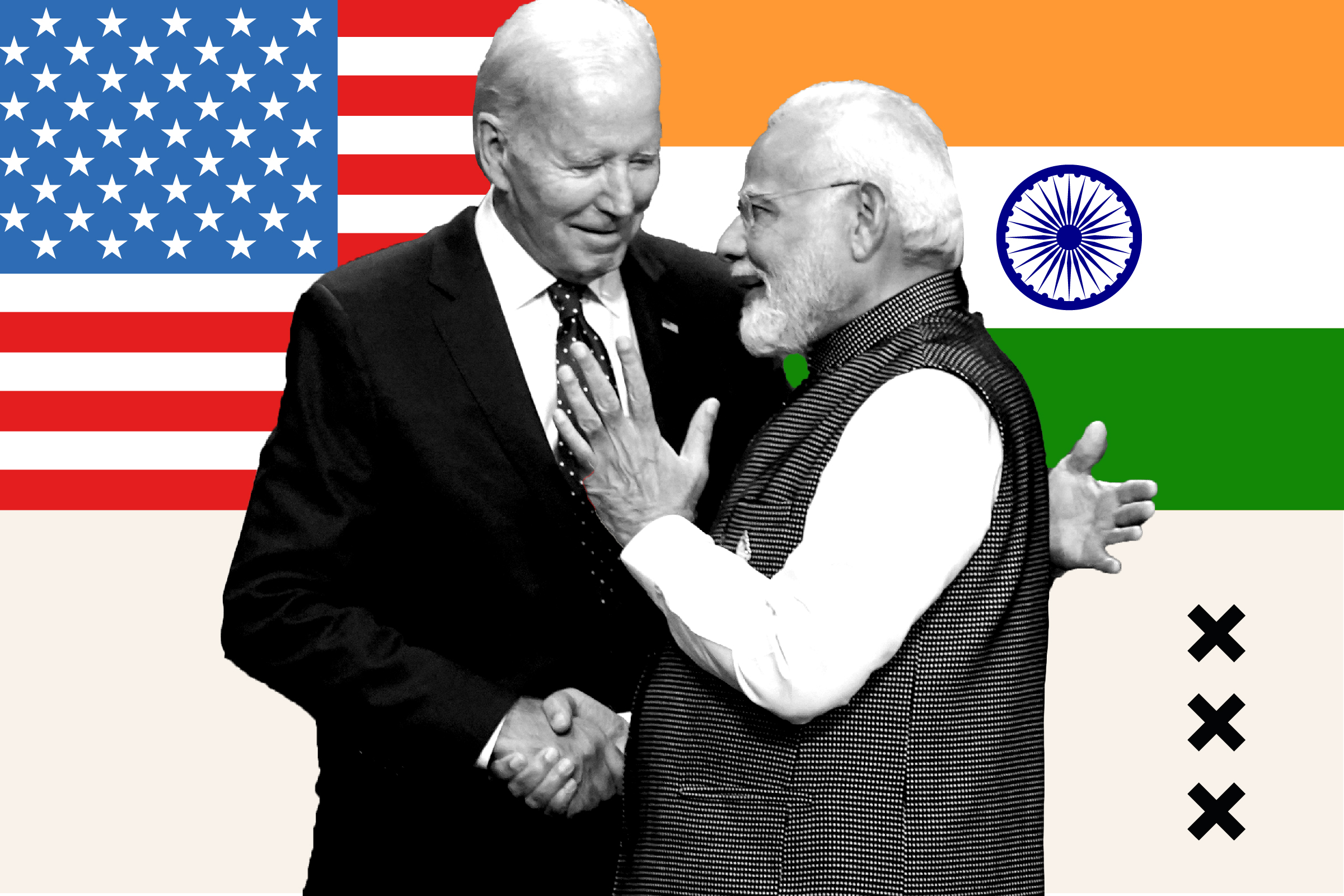
Why India, China's Bitter Foe, Won't Become a U.S. Ally
['India', 'China', 'us', 'New', 'two']
"De-escalation is the only way," expert Swaran Singh told Newsweek, "as both China and India cannot afford to derail their development trajectories."
Why India, China's Bitter Foe, Won't Become a U.S. Ally
Amid heightened tensions between neighboring Asian powers that are home to the world's two largest populations, India has grown closer to the United States and other Western-aligned nations, while becoming increasingly wary of a rising China. Even as New Delhi takes unprecedented steps toward shoring up relations with the Washington, there appears to be little chance the traditionally non-aligned nation will establish any formal defense alliance with the U.S. "In fact, we do refer to India and the USA as natural allies," former Indian ambassador to China Ashok Kantha told Newsweek, "But this is not in the sense of a military alliance." "So while India is definitely not inclined to move towards any kind of containment of China, we believe that a country like China cannot be contained, or nor are we interested in the economic decoupling from China," Kantha said, "I think we are more inclined towards some kind of de-risking strategy vis-à-vis China, we are inclined to build deterrence to guard against China's reckless behavior to avoid a repetition of what happened along the borders in the western sector in April and May 2020.". "De-escalation is the only way as both China and India cannot afford to derail their development trajectories and miss their imagined historic resurgence to the center stage of world affairs," Singh told Newsweek. The dynamic between China and India was not always so grim. These include the nine-state Shanghai Cooperation Organization bloc and the informal coalition known as BRICS, in which China and India are joined by Brazil, Russia and South Africa. "While China has demonstrated an unprecedented economic growth that undergirds its political influence and military modernization, China's rise has made India the preferred partner for status quo powers in the U.S.-led liberal world order," Singh said.